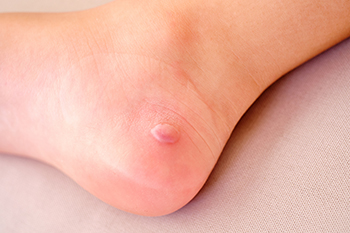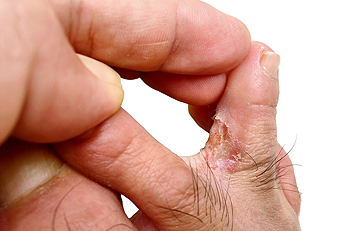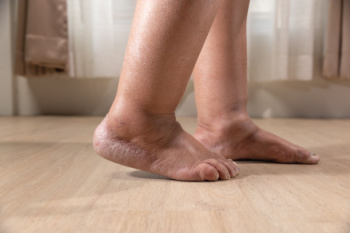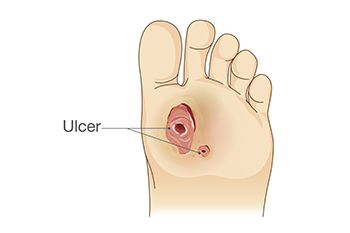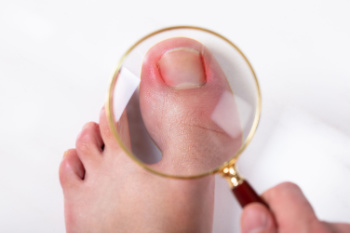
An ingrown toenail occurs when the edge of the toenail grows into the surrounding skin causing pain, redness, and swelling. This condition typically affects the big toe, although it can occur on any toe. Ingrown toenails are often caused by improper nail trimming, where nails are cut too short or rounded at the corners. Wearing tight-fitting shoes that apply pressure on the toes can also contribute to the problem. In some cases, trauma or injury to the toenail can lead to an ingrown toenail. The nails can become infected when left untreated, leading to increased pain, pus, and inflammation. Infection occurs when bacteria enter the broken skin surrounding the nail, causing the area to become swollen and tender. If you have an ingrown toenail, it is suggested that you consult a podiatrist who can offer effective treatment options that may keep it from getting infected.
Ingrown toenails can become painful if they are not treated properly. For more information about ingrown toenails, contact one of our podiatrists of Carolina Foot & Ankle Specialists. Our doctors can provide the care you need to keep you pain-free and on your feet.
Ingrown Toenails
Ingrown toenails occur when a toenail grows sideways into the bed of the nail, causing pain, swelling, and possibly infection.
Causes
- Bacterial infections
- Improper nail cutting such as cutting it too short or not straight across
- Trauma to the toe, such as stubbing, which causes the nail to grow back irregularly
- Ill-fitting shoes that bunch the toes too close together
- Genetic predisposition
Prevention
Because ingrown toenails are not something found outside of shoe-wearing cultures, going barefoot as often as possible will decrease the likeliness of developing ingrown toenails. Wearing proper fitting shoes and using proper cutting techniques will also help decrease your risk of developing ingrown toenails.
Treatment
Ingrown toenails are a very treatable foot condition. In minor cases, soaking the affected area in salt or antibacterial soaps will not only help with the ingrown nail itself, but also help prevent any infections from occurring. In more severe cases, surgery is an option. In either case, speaking to your podiatrist about this condition will help you get a better understanding of specific treatment options that are right for you.
If you have any questions please feel free to contact our offices located in Mount Pleasant and Charleston, SC . We offer the newest diagnostic and treatment technologies for all your foot and ankle needs.


